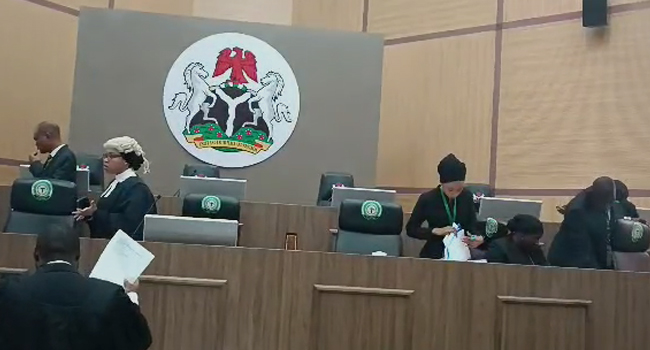The Supreme Court has demanded that state governments defend themselves in the local government autonomy lawsuit.
By Abayomi Odunowo.
Local governments in Nigeria play a crucial role in the governance and development of the country. With 774 local governments spread across the 36 states of Nigeria, they are meant to be the closest form of government to the people, responsible for delivering essential services and representing the interests of their communities. However, the reality on the ground is quite different, as the administration of local governments in Nigeria has been stifled by the overbearing influence of state governors.
The overbearing influence of state governors on local governments is a longstanding issue in Nigeria. Despite being constitutionally recognized as the third tier of government, local governments have often operated as mere extensions of the state governments. State governors have wielded enormous power over local governments, controlling their finances, personnel, and decision-making processes. This has led to a situation where local governments have become largely powerless and dependent on state governments for their operations.
The recent move by the federal government to seek full autonomy for local governments in Nigeria through a lawsuit against state governors is a welcome development. The Supreme Court’s order for state governors to file their respective defence to the suit is a step in the right direction towards ensuring that local governments are able to function independently and effectively. By giving local governments full autonomy, they will be better positioned to serve the needs of their communities, deliver essential services, and implement development projects that are tailored to their specific needs.
The stifling of local government administration by state governors has had far-reaching consequences on the governance and development of Nigeria as a whole. It has hindered the effective delivery of services to the grassroots, perpetuated corruption and inefficiency, and limited the ability of local governments to address the unique challenges facing their communities. By granting local governments full autonomy, the federal government has the opportunity to empower them to become more responsive, accountable, and transparent in their operations.
This overbearing influence of state governors on local governments in Nigeria has been a major obstacle to good governance and development in the country. The recent legal action by the federal government seeking full autonomy for local governments is a positive step towards addressing this issue. By granting local governments the autonomy they need to operate independently, Nigeria has the potential to unlock the full potential of its local governments and accelerate development at the grassroots level. It is imperative that state governors respect the rule of law and allow local governments to function autonomously for the greater good of the country.
In this recent court case, Mr Lawal emphasized the importance of all filings and exchange of documents to be completed by 10 June. Additionally, he ordered that the states without legal representation at the proceedings must be served with new hearing notices, namely Borno, Kano, Kogi, Niger, Ogun, Osun, Oyo, and Sokoto.
The Attorney-General and Commissioner for Justice of Ebonyi State, Ben Odoh, stated that the respondents had not yet received the federal government’s originating summons due to their service at the States’ liaison offices in Abuja. Consequently, he requested 14 days for the respondents to respond to the suit. On the other hand, the Attorney-General of the Federation, Mr Fagbemi, urged the court to require the governors to file their defense within five days.
The court adjourned the hearing until 13 June to allow for the completion of necessary paperwork and to ensure all parties are properly prepared for the proceedings.
Local governments in Nigeria face a significant challenge in their administration due to the excessive control exerted by state governors. With 774 local governments scattered across the country, these entities should ideally operate independently and efficiently to meet the needs of their communities. However, the practice of state governors retaining funds meant for local governments in joint accounts and releasing only what they see fit has hindered their autonomy.
In a bid to address this issue, the Attorney-General of the Federation has taken legal action by filing a suit at the Supreme Court. The suit aims to ensure the independence of local governments by prohibiting governors from unlawfully dissolving democratically elected leaders and controlling funds allocated to them. Additionally, the court is urged to prevent governors from appointing caretaker committees in violation of the constitutionally recognized democratic system.
By pushing for direct funding from the Federation Account to local governments and preventing governors from misusing these funds, the suit seeks to enhance the effectiveness and autonomy of local governments in Nigeria. This legal initiative is a crucial step towards reforming the governance structure and empowering local authorities to better serve their communities.
Grounds of the suit in the case between the federal government and the state governments in Nigeria revolve around the interpretation and implementation of the Constitution relating to local government governance and funding. The federal government argued that the Constitution clearly mandates the existence of a democratically elected local government system, with funds allocated to them from the Federation Account. The chief law officer of the country emphasized the importance of upholding the provisions of the Constitution, which recognizes the three tiers of government – federal, state, and local.
The plaintiff further contended that the failure of state governors to implement a democratically elected local government system goes against the sanctity of the Constitution. They argued that disbursing funds from the Federation Account to governors for non-existent democratically elected local governments undermines the constitutional framework. The federal government asserted that they are not obligated to pay states funds meant for local governments if the governors do not comply with the constitutional requirements.
On the other hand, the state governments opposed the federal government’s attempts to enforce the constitutional provisions concerning local government funding. They argued that the Nigerian Financial Intelligence Unit, a federal body, did not have the authority to abolish the joint accounts where state governors were diverting local governments’ funds. The state governments claimed that under a federal system of government, they have the autonomy to decide how to use these funds without interference from federal agencies.
The legal battle between the federal government and state governments highlights a significant conflict regarding the interpretation and application of constitutional provisions relating to local government governance and funding. The outcome of this case will have far-reaching implications for the distribution of resources and the functioning of local government systems in Nigeria. It also underscores the importance of upholding the rule of law and ensuring compliance with the constitutional framework to maintain the integrity of the country’s governance structure.
Otunba Abdulfalil Abayomi Odunowo
National Chairman AATSG
Mobil: +2349053535322.





